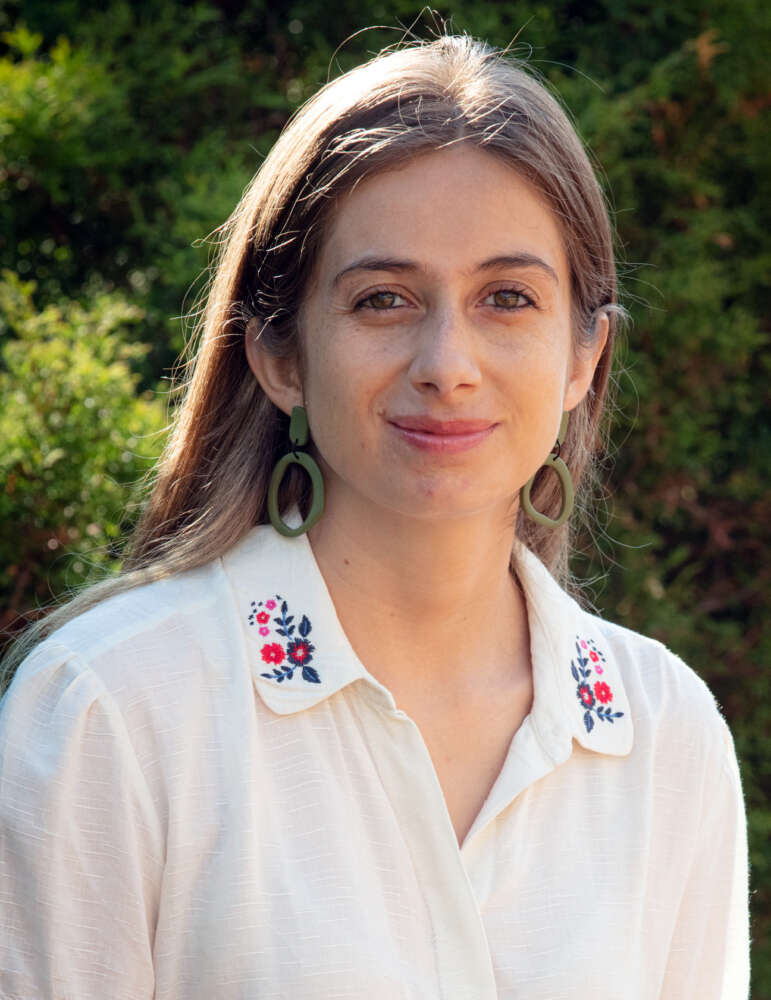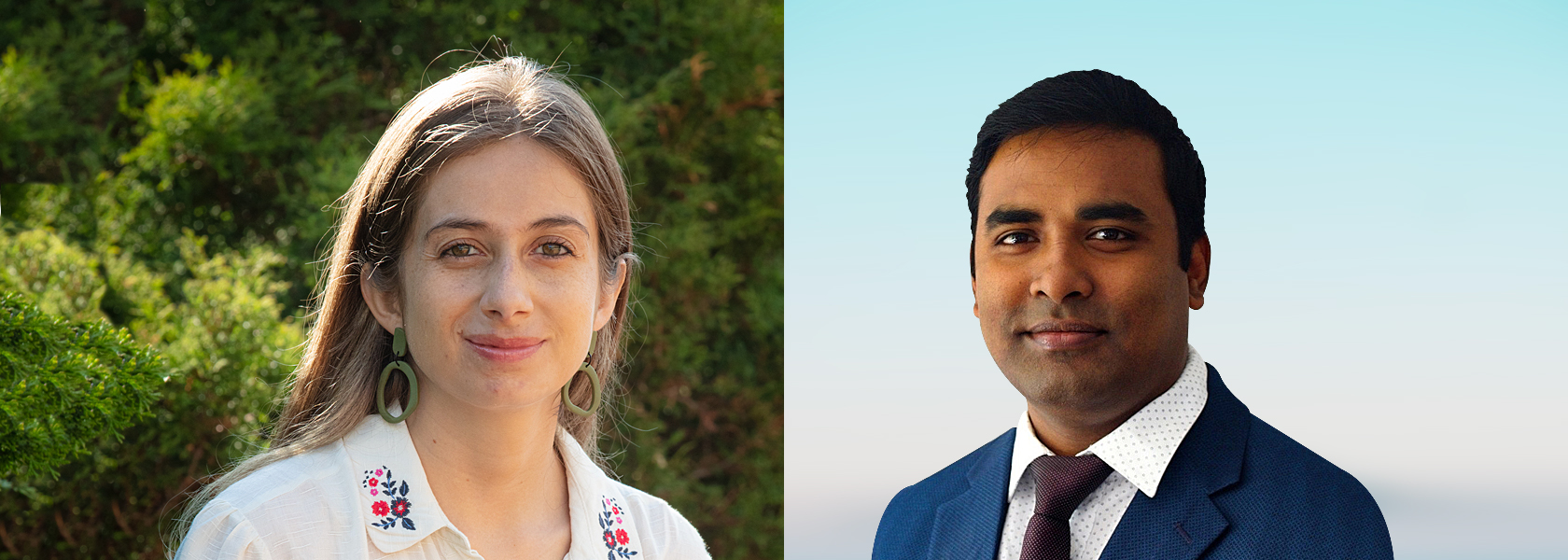Supporting rural communities and promoting sustainable food systems are the shared concerns of two University of Guelph emerging researchers who will receive the Government of Canada’s most prestigious scholarships.
Maria Margarita Fontecha, PhD candidate in rural studies and an Arrell Scholar, has received a Vanier Canada Graduate Scholarship. Named for former Governor General Georges Vanier, the award provides top Canadian and international doctoral students $50,000 per year for up to three years.
Dr. Khodokar Kabir, School of Environmental Design and Rural Development (SEDRD), has received a prestigious Banting Postdoctoral Fellowship. Worth $70,000 a year, the two-year award is named for Dr. Frederick Banting, the Canadian medical scientist and Nobel laureate who helped discover insulin.
Both researchers’ awards are funded by the Social Sciences and Humanities Research Council (SSHRC). Together, SSHRC, the Canadian Institutes of Health Research and the Natural Sciences and Engineering Research Council fund these Canada-wide awards.
“I am delighted the Vanier adjudication committee recognized in Margarita Fontecha the same brilliance our Arrell Scholarship committee saw. The University of Guelph is an ideal intellectual home for Margarita to advance her research,” said Dr. Ben Bradshaw, assistant vice-president (graduate studies). “It is similarly telling that Dr. Kabir has joined the University to advance his research program following his graduate and post-doctoral training in Bangladesh and Germany.”
“These distinguished awards recognize the phenomenal impact of the research that these remarkable emerging scholars have done and will continue to do into the future,” said Dr. Malcolm Campbell, vice-president (research). “They are also emblematic of the top-tier research talent at the University of Guelph and the calibre of research conducted here that enable us to attract world-class doctoral students and post-doctoral researchers.”
Margarita Fontecha
Vanier Scholar

Fontecha will explore the links among food security, regional inequality and coca production in rural Colombia. She is supervised by Dr. Silvia Sarapura, a professor in SEDRD.
Growing coca, the plant from which cocaine is derived, provides income for many Colombians living in geographically and politically isolated areas, and it also fuels drug trafficking. Fontecha said current scholarship suggests that coca production is the outcome of social, economic and political inequality in rural territories.
“Families risk their safety and security growing coca. It displaces food production, disrupts community networks and increases regional disparities,” she said. “So why do people participate in this illicit economy? The lack of other opportunities for rural youth and their families.”
Focusing on youth perspectives, Fontecha aims to document the complex realities of coca farmers, contributing evidence-based support for government policies and programs that promote sustainable agriculture as an alternative.
Fontecha is a journalist and communications specialist who has covered sustainability and environmental issues in Colombia. She holds a master’s degree in sustainable development practice from the University of Florida, Gainesville, and a BA in history from Universidad del Rosario, Bogota, Colombia.
“I was drawn to study in Canada — and to the University of Guelph — because of the support here for sustainable agri-food systems,” said Fontecha. “The Vanier award will allow me to connect with networks of other people who are working toward efficient, sustainable and inclusive food production worldwide and to bring new insights back home to Colombia.”
Dr. Khondokar Kabir
Banting Post-doctoral Fellow

Information disorder — the circulation of misleading, falsified or deceptive information whether with or without harmful intent — can have devastating social, political and economic costs, said agriculturalist Dr. Kabir, who will receive a Banting Post-doctoral Fellowship.
“Information disorder is often discussed in relation to topics like health and politics, but it also has consequences for rural communities in every corner of the world,” he said. “Understanding how agri-food stakeholders, such as farmers, researchers and vendors of supplies and equipment, come to trust and adopt flawed information is key to combatting these effects.”
With SEDRD professor Dr. Ataharul Chowdhury, Kabir will undertake the first research project to consider information disorder and the agri-food community.
The project will explore agri-food stakeholders’ perceptions of misinformation about climate change and agri-food issues like organic agriculture and GMOs. Kabir will also consult with misinformation experts worldwide to recommend strategies these stakeholders can use to better evaluate online information.
Kabir, who previously studied at the Bangladesh Agricultural University and the University of Hohenheim in Germany, most recently completed a post-doc at the University of Hamburg where he held an International Climate Fellowship from the Alexander von Humboldt Foundation.
“I chose to do post-doctoral work abroad to expand my career opportunities,” Kabir said. “I was attracted to the University of Guelph by the school’s strong focus on supporting sustainable rural communities and for the opportunity to continue the research relationship I established with Dr. Chowdhury during my PhD project.”
